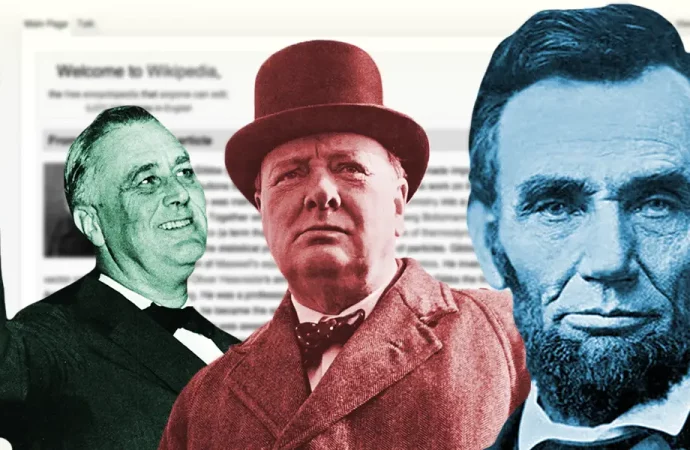Introduction Throughout history, certain leaders have left an unforgettable mark on the world. Their vision, determination, and ability to inspire others have changed the course of history. Some leaders fought for justice, while others built empires or led revolutionary movements. Whether in politics, science, or social justice, these leaders demonstrated qualities that made them icons
Introduction
Throughout history, certain leaders have left an unforgettable mark on the world. Their vision, determination, and ability to inspire others have changed the course of history. Some leaders fought for justice, while others built empires or led revolutionary movements.
Whether in politics, science, or social justice, these leaders demonstrated qualities that made them icons of leadership and change. In this article, we explore some of the most influential leaders in history and their impact on the world.
What Makes a Leader Influential?

Image by: Yandex.com
An influential leader is someone who inspires, guides, and drives change. These individuals possess certain qualities that make them stand out:
- Vision: They see beyond the present and work toward a greater goal.
- Determination: They do not give up, even when faced with challenges.
- Charisma: They inspire others through their words and actions.
- Integrity: They stand by their values and principles.
Now, let’s take a look at some of the most influential leaders in history.
Top The Most Influential Leaders in History
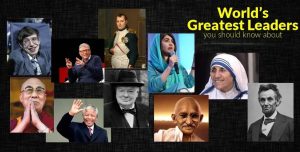
Image by: Yandex.com
1. Mahatma Gandhi: The Symbol of Non-Violence
Mahatma Gandhi led India to independence through non-violent resistance and civil disobedience. His leadership not only freed India from British rule but also inspired global movements for civil rights and freedom.
- Impact: Advocated for peace and equality, inspiring leaders like Martin Luther King Jr. and Nelson Mandela.
- Famous Quote: “Be the change that you wish to see in the world.”
Gandhi proved that non-violence is a powerful tool for change.
2. Nelson Mandela: The Fighter for Equality
Nelson Mandela fought against racial discrimination and apartheid in South Africa. Despite spending 27 years in prison, he emerged as a leader who united a divided nation.
- Impact: Became the first Black president of South Africa and worked for peace and reconciliation.
- Famous Quote: “It always seems impossible until it’s done.”
Mandela’s persistence and leadership made him a global icon of justice.
3. Abraham Lincoln: The Defender of Democracy
Abraham Lincoln was the 16th president of the United States, best known for leading the country during the Civil War and ending slavery.
- Impact: Preserved the Union, abolished slavery, and strengthened democracy.
- Famous Quote: “Government of the people, by the people, for the people, shall not perish from the Earth.”
Lincoln’s leadership during one of America’s darkest times ensured the survival of the nation.
4. Martin Luther King Jr.: The Voice of Civil Rights
Martin Luther King Jr. fought for racial equality in the United States using peaceful protests and powerful speeches. His leadership changed American society forever.
- Impact: Led the Civil Rights Movement and inspired laws against racial discrimination.
- Famous Quote: “I have a dream that one day this nation will rise up and live out the true meaning of its creed.”
His vision for equality continues to inspire people across the world.
5. Winston Churchill: The Leader in Crisis
Winston Churchill was the British Prime Minister during World War II. His powerful speeches and fearless leadership helped Britain resist Nazi Germany.
- Impact: Motivated Britain to fight against Hitler’s army and shaped world history.
- Famous Quote: “Success is not final, failure is not fatal: it is the courage to continue that counts.”
Churchill’s leadership in difficult times remains an inspiration for many.
6. Alexander the Great: The Conqueror of Empires
Alexander the Great was one of the greatest military leaders in history. He built one of the largest empires of the ancient world before the age of 33.
- Impact: Spread Greek culture and ideas across Europe, Africa, and Asia.
- Famous Quote: “There is nothing impossible to him who will try.”
His ambition and strategy changed the world map forever.
7. Napoleon Bonaparte: The Mastermind of Strategy
Napoleon Bonaparte, the French military leader, revolutionized warfare and government systems in Europe. His influence extended beyond the battlefield.
- Impact: Modernized France and spread legal reforms through the Napoleonic Code.
- Famous Quote: “Victory belongs to the most persevering.”
Despite his failures, his leadership shaped European history.
8. Queen Elizabeth I: The Empowered Monarch
Queen Elizabeth I ruled England for over 44 years and led the country through its Golden Age. She strengthened England’s economy, navy, and culture.
- Impact: Established England as a major world power.
- Famous Quote: “I know I have the body of a weak, feeble woman; but I have the heart and stomach of a king.”
Her leadership helped define England’s future.
9. Julius Caesar: The Roman Visionary
Julius Caesar played a crucial role in the rise of the Roman Empire. His reforms in government and military strategy changed Rome forever.
- Impact: Expanded Rome’s territory and reformed the government.
- Famous Quote: “I came, I saw, I conquered.”
His leadership shaped the Roman world and influenced modern politics.
10. Franklin D. Roosevelt: The Rebuilder of Nations
Franklin D. Roosevelt (FDR) led the United States through the Great Depression and World War II. His leadership restored hope during difficult times.
- Impact: Created economic reforms that helped rebuild the U.S. economy.
- Famous Quote: “The only thing we have to fear is fear itself.”
His leadership saved America from one of its worst crises.
Characteristics of Influential Leaders
Influential leaders often share some common traits that make them effective. They are usually good communicators, able to express their ideas clearly and connect with others. They show empathy, understanding the feelings and needs of those around them. These leaders are also adaptable, able to change their approach based on the situation. By being honest and trustworthy, they earn the respect of their followers, which is essential for effective leadership.
The Impact of Technology on Leadership
Technology has changed the way leaders communicate and engage with people. Social media platforms, like Twitter and Facebook, allow leaders to share their messages quickly and reach a wider audience. This immediate connection can help mobilize support for important causes. However, technology also presents challenges, such as misinformation and the pressure of public scrutiny. Influential leaders must navigate these issues while using technology to enhance their impact.
The Importance of Diversity in Leadership
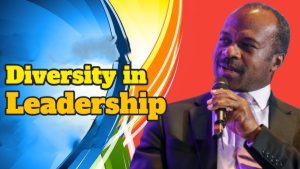
Image by: Yandex.com
Diversity is crucial in leadership because it brings different perspectives and ideas. When leaders come from various backgrounds, they can better understand the needs of their communities. This inclusivity leads to more innovative solutions and a greater sense of belonging for everyone. Encouraging diverse leaders also helps break down barriers and challenge stereotypes, creating a more equitable society. The future of leadership will benefit from a wide range of voices and experiences.
The Role of Education in Developing Leaders
Education plays a vital role in shaping influential leaders. Schools and universities can help students develop critical thinking skills, creativity, and emotional intelligence. By teaching leadership principles and encouraging active participation, educational institutions prepare individuals to take on leadership roles in their communities. Workshops, mentorship programs, and internships can also provide valuable experiences that help young leaders grow and succeed.
Building Strong Communities Through Leadership
Influential leaders are essential for building strong communities. They encourage people to work together, creating a sense of belonging and shared purpose. By fostering collaboration, leaders can help solve local problems and improve the quality of life for everyone. Community leaders often organize events, promote volunteerism, and support local initiatives. This active engagement strengthens relationships and builds trust among community members, making it easier to address challenges together.
Learning from Historical Leaders
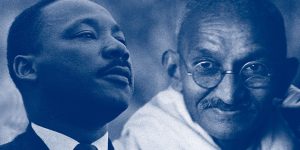
Image by: Yandex.com
We can learn a lot from historical leaders who have made a difference in the world. By studying their lives and actions, we can understand what worked and what didn’t. For example, leaders like Gandhi and Martin Luther King Jr. showed the power of peaceful protest. Their methods of non-violence taught us that change can happen without fighting. By looking at these examples, we can find inspiration for our own leadership journeys.
Overcoming Fear of Failure
Many potential leaders are held back by a fear of failure. This fear can prevent them from taking risks or pursuing their goals. However, it is important to remember that failure is often a part of the learning process. Influential leaders understand that mistakes can provide valuable lessons. By embracing failure and viewing it as an opportunity to grow, leaders can inspire others to take bold steps and pursue their dreams.
Challenges Faced by Influential Leaders
Influential leaders face many challenges in their journey. They often encounter resistance from those who disagree with their ideas or who feel threatened by change. Balancing the needs of different groups can be difficult, as leaders must navigate various opinions and interests. Additionally, leaders may experience personal sacrifices, such as time away from family or facing criticism from the public. Despite these challenges, many leaders remain committed to their vision and continue to fight for what they believe in.
Future of Influential Leadership
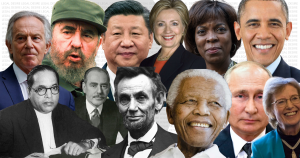
Image by: Yandex.com
The future of influential leadership is bright, as new leaders continue to emerge across the globe. With advancements in technology and communication, it is easier than ever for individuals to connect and organize. The rise of social media allows leaders to share their messages widely and engage with a larger audience. As societies face new challenges, such as climate change and social inequality, influential leaders will play an essential role in guiding us toward solutions. The next generation of leaders will need to adapt and evolve, using their unique skills to inspire change and make a difference.
Analysis Table: A Quick Comparison of Influential Leaders
| Leader | Key Contribution | Legacy |
|---|---|---|
| Mahatma Gandhi | Led India to independence | Inspired non-violent movements worldwide |
| Nelson Mandela | Fought apartheid in South Africa | Became the first Black president |
| Abraham Lincoln | Ended slavery in the U.S. | Strengthened democracy |
| Martin Luther King Jr. | Led the Civil Rights Movement | Changed laws on racial equality |
| Winston Churchill | Led Britain during WWII | Motivated people with powerful speeches |
| Alexander the Great | Built a vast empire | Spread Greek culture |
| Napoleon Bonaparte | Revolutionized warfare | Introduced legal reforms |
| Queen Elizabeth I | Strengthened England | Defined the nation’s future |
| Julius Caesar | Expanded the Roman Empire | Shaped modern governance |
| Franklin D. Roosevelt | Led U.S. during WWII | Created economic recovery programs |
Conclusion
History has been shaped by great leaders who demonstrated vision, courage, and determination. Each of these influential leaders left a lasting impact on society, inspiring generations to come. Whether through war, peace, politics, or activism, their leadership changed the world. As we face challenges in the modern world, the lessons from these leaders are still important. By learning from their lives and impacts, we can gain insights into effective leadership and its power to inspire positive change.
Call to Action
Which leader inspires you the most? Share your thoughts in the comments and let us know how their leadership has influenced you.

